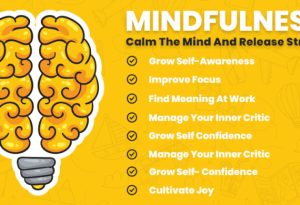Embracing Change: How to Thrive in Uncertain Times

Transition, in general, is a natural process in people’s lives, but it is accompanied by such negative mental states as fear, anxiety, or insecurity. Change is inevitable in our lives and can be in form of a new job or a change of job or a change in habits; therefore adapting ourselves to change is essential for our wellbeing. In this article, I will attempt to define what change is and how it works, along with the difficulties that can be associated with it, and strategies that can be used to not only survive but also to succeed in a change process.
Introduction
Marie Andrieux Some areas of knowledge and the process of its accumulation remain more or less stable rather it proves that in life the only thing one can be sure of is change. It includes tiny changes that people make in their daily lives as well as large changes in the life patterns such as a change in jobs or relationships. Accepting change is not just enough, one has to assent it and accept it in order to actively manage it and, if possible, minimize the risks that come with it.
Understanding Change
Change can manifest in various forms: ranging from altered technologies or structures of working, to other significant events in one’s life such as changing residence or employment. Thus, different types of change elicited unique feelings and consequences in relation to how people process and approach change.
Challenges in Embracing Change
In this context, change means the opening of new opportunities but it is also followed by certain difficulties. Out of familiarity, denial and reluctance to step out of one’s comfort zone, and lack of vision about the future are some of the ruses that make it hard for people to embrace change. To build the value of new experiences, workers have a rigorous task of addressing all these barriers.
Strategies for Embracing Change
Cultivating a Growth Mindset
People possessing a growth mindset are more willing to work through the difficulties and continue learning. The case of perceiving obstacles as a negative occurrence rather than one affecting personal growth hinders an individual’s ability to cope with change.
Developing Resilience
Coping is the capacity to recover form a condition or a situation. Tease smiling factors and constructive thinking and rising a powerful alarms that the uncertainties of the future will be met with strength from past experiences.
Setting Realistic Goals
Finally, goal that is clearly defined, but realistic, can offer the much needed passive for of direction given the currents of change. That is why goals are used as markers of achievements and as incentives in cases when changes are needed.
Strategies Which Can Be Taken By Any Organisation In Order to Sustain It During Change.
Adapting to New Circumstances
One learns that flexibility is the main way to manage change since the changes are inevitable. The ability to receive new information without prejudice and adapt to them for interaction with new conditions is essential in transitions.
Learning from Setbacks
A failure in a particular process is really a blessing in disguise because it has hidden lessons. Those who can challenge themselves to think about problems, difficulties, and cases and be ready with lessons learned become better in the face of the storm.
Seeking Support
It is always very challenging manage change on ones own. Turning to friends, family, mentors, or professional associations helps in getting moral and/or fresh insight at times of bewilderment.
Benefits of Embracing Change
It often says that change is a good thing and it creates chances for growth and success at the workplace. It encourages the capabilities of flexibility, inventive thinking and idea processing which are significant competencies in a world of continuous change.
Conclusion
Therefore change is not only about adapting to the new reality that is unfavourable but it is the acceptance of challenges as growth enhancements. This means not only being able to deal with change, but being is able to grow and succeed in the midst of change. Acceptance of change places one in a vantage to capture new opportunities and create a course to attain self employment and accomplishment.
FAQs (Frequently Asked Questions)
What are the gains of change?
Innovating helps to demystify the individual, to make him more robust, and to equip him with yet one more asset for meeting and overcoming the difficulties, for catching the opportunities in the future.
What can I do to eliminate the fear that arises from change?
Dealing with change phobia involves comprehending the fact that change cannot be avoided, turning one’s attention to the positive outcomes, and facing change on a gradual basis.
The initiative also asked what the appropriate strategies are when dealing with change?
The measures which include expecting growth, promoting resilience, creating objectives, and seeking assistance from other people are great in managing change.
How does one positively benefit from change?
Holding the concept of change to accept change, leads to thinking, innovating, and growth, therefore the development of better ideas and character.
Who can I turn to when in difficult situations?
Ear from friends, families, tutors or group of individuals, or professional bodies that offer word of encouragement and direction when one is in confusion.












